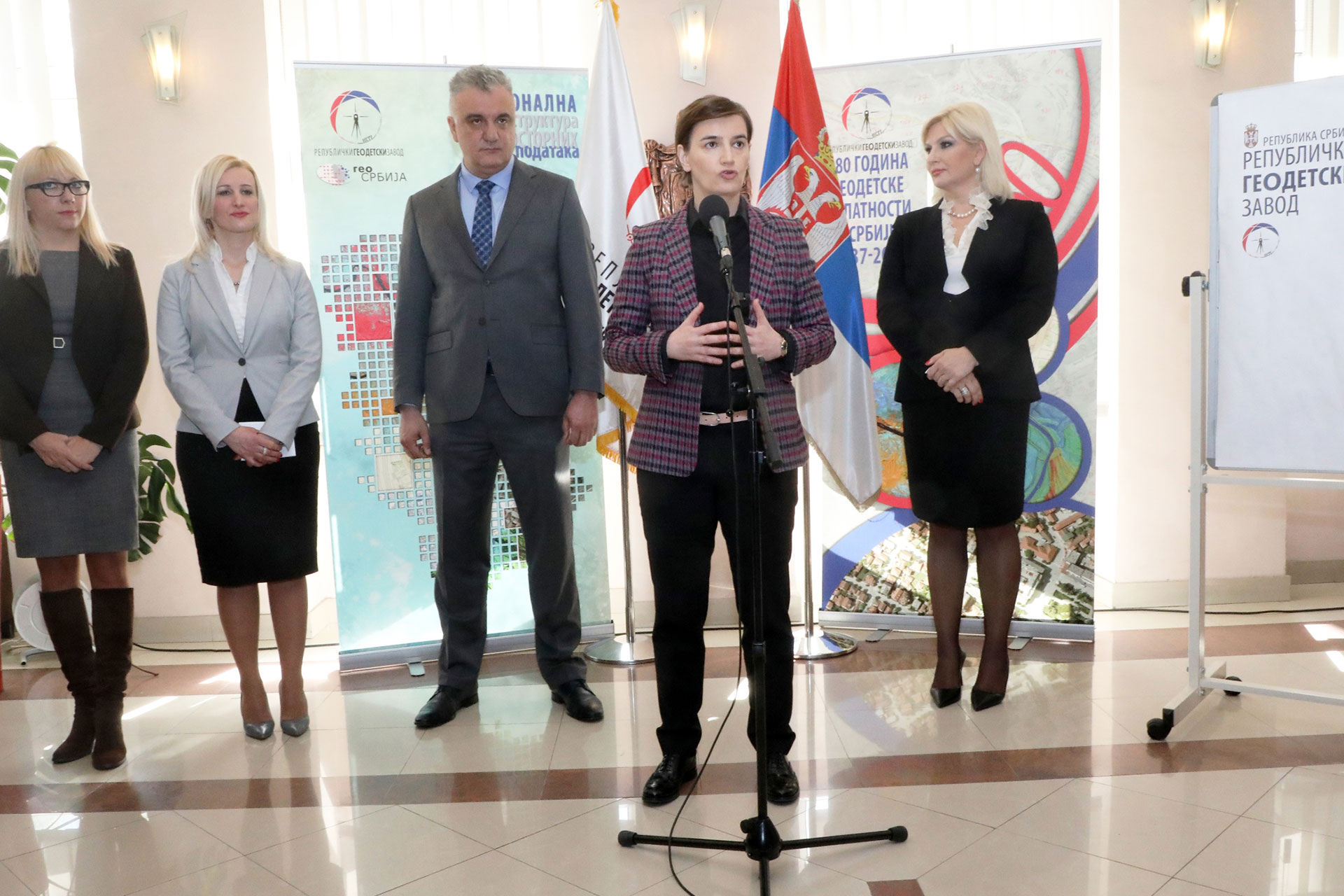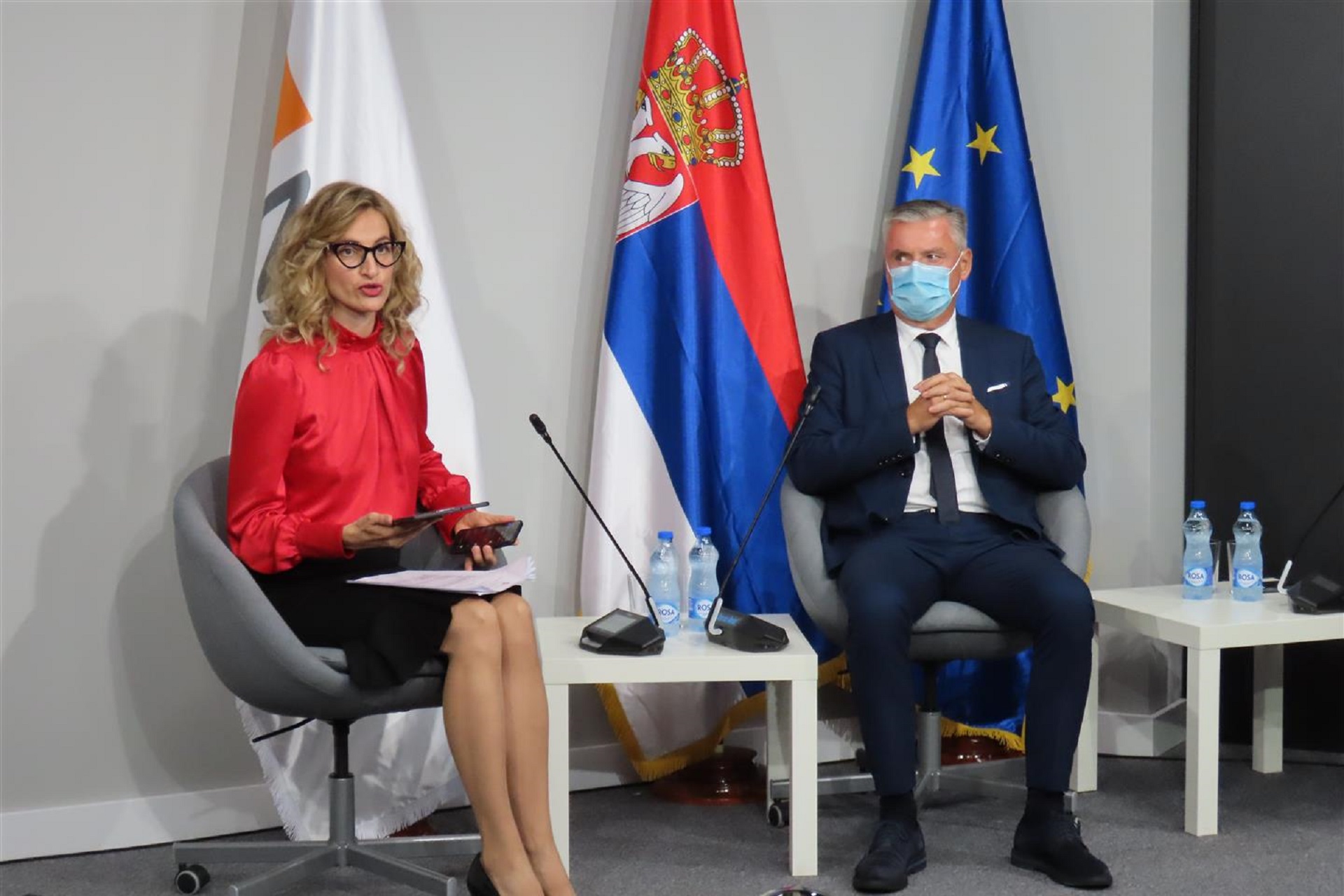The cadastre now knows how hard their employees work, municipalities actively assist
In most local governments in Serbia, especially in the central and western parts of the country, cadastral services successfully handle outstanding cases and in some municipalities their number is up to 30 times lower than the requests received. On the other hand, those in "red" include Belgrade and other major centres, municipalities in the eastern part of Srem, in the south of Backa, in the north of Banat and in the far east of the country.
Five municipalities, three of them in Belgrade, are in "purple", with a critical number of backlogs, while the two municipalities of Branicevski district are the so-called extremes, because the number of outstanding claims exceeds the received ones by five or even 12.5 times.
These are the data presented by the Director of the Republic Geodetic Authority Borko Drasković at the constituent session of the Business Friendly Cities and Municipalities Club (BFC Club). We are talking about 25 local governments, who have successfully passed through the Business Friendly Certification programme in Southeast Europe (BFC SEE) and have received confirmation that they are providing business-friendly services. The BFC Club also has cities and municipalities in the certification process, and another seven have opted to enter the process and join NALED's new, seventh working body.
- Property and legal issues related to real estate are one of the problems that plague local governments the most and one of the first tasks of the BFC Club will be to improve cooperation between municipalities and cities with the Real Estate Cadastre Department in order to quickly solve cases and implement development plans. RGA does not have enough employees in some parts and municipalities help a lot by lending their people as help, and that co-operation should be further improved. On the other hand, local governments would help the efficiency of the cadastre by providing the data needed for registration on time and in digital form, thereby reducing delays. In the end, it is also important that local governments and all participants in legal affairs concerning real estate eliminate the practice of seeking excerpts from real estate certificate, because insight into this data can now be done for free through the RGA portal – says Dragana Sotirovski, president of the BFC Club and mayor of Nis.
The Republic Geodetic Authority has introduced a system for monitoring the efficiency of the work of regional departments and now has accurate information on the number of applications received for registration, the number of backlogs, the number of employees, but also data on how actively they work. On that basis, the RGA headquarters evaluates the work of its services.
- Thanks to the digitization of business processes, RGA can precisely monitor the efficiency of the conduct of other stakeholders for land administration, including local governments, courts, notaries and others. The efficiency of the registration process depends on them as well - whether they enact acts determining real estate rights in, prescribed and consistent ways, both in terms of content and form, and whether they are delivered digitally without delay to the Real Estate Cadastre Service. The chain depends on all participants, but the condition is seen in the cadastre so it often seems that the main problem is with us. However, an independent expert group analyzed the application of the Law to determine that the cadaster is in charge of less than a tenth of the work. We expect the support of the BFC Club to overcome the challenges through increasing the personnel capacity of our services and the uniform issuance of certificates on determining ownership rights – says RGZ Director Borko Drasković.
In addition to services in four local governments where the active working hours are above six hours, there are more than 70 towns and municipalities where working hours are above five hours. On the other hand, the infamous record is held by the cadastral service in one of the municipalities in the south, whose average active working hours per employee during the working day were only two hours and 29 minutes, as well as a municipality in Bačka (2:41) and a municipality in eastern Serbia (2:42). In seven other, average hours were between three and four hours.
When it comes to grades, there are no excellent ones, and no services with an average score above four. Officials in Jagodina, Bačka Palanka and Mali Iđoš (3.76), Kikinda (3.72), Pančevo (3.71), Novi Bečej and Opovo (3.64) were the best rated.
At the first session of the BFC Club, it was noted that obstacles in resolving cases were also spotted in local governments that "share" employees covering several towns and municipalities. On the other hand, the cadastre seeks to resolve the backlogs by transferring part of the cases to departments that have more resources, and also prioritises those subjects that local governments highlight as urgent because they are development projects.
The objectives of the BFC Club are to improve the legal framework for local development, implement the highest international standards of a favourable business environment, optimize procedures and digitize services for citizens and businesses, and promote investment and entrepreneurship. The BFC Club insists that cities and municipalities that are development leaders deserve special treatment from the state and institutions, in order to lead the country's development even more strongly. At the same time, they have an obligation to share their experiences with both each other and the municipalities that are behind in development, in order to help others.



